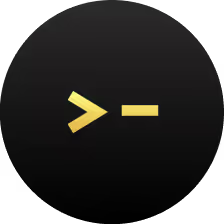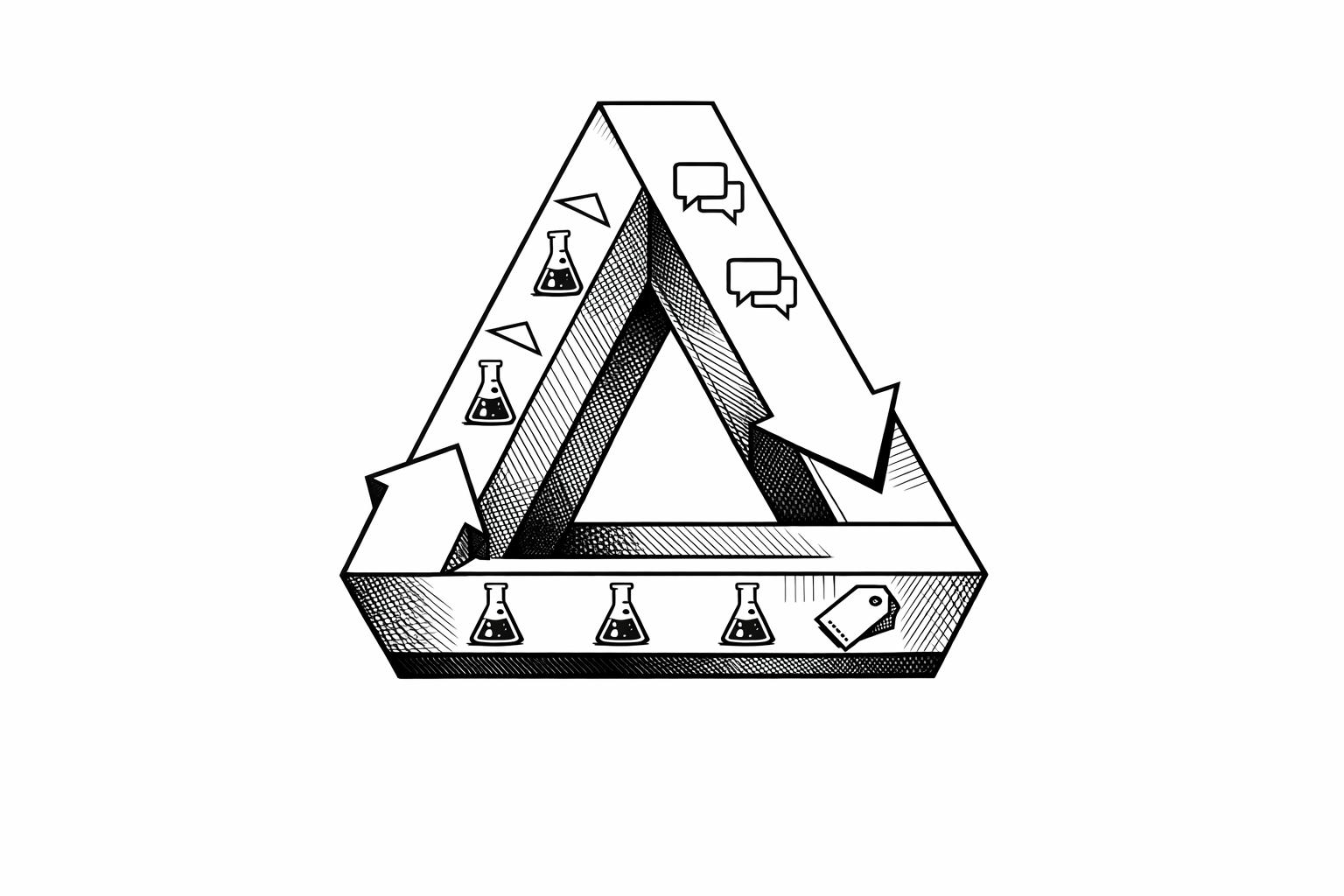Free Alternative to OpenAI's $200 Research Tool

OpenAI's $200/month research tool might not be for everyone. Luckily, there are six free alternatives that offer advanced features like real-time search, data analysis, and customizable workflows. Here's a quick breakdown:
- God of Prompt: Tailored GPTs for business and market analysis, file handling, and automation.
- Perplexity AI: Real-time web search, academic paper analysis, and transparent citations.
- Meta AI (Llama 3.2): Open-source LLM with custom integrations and multi-language support.
- DeepSeek: Efficient for large-scale data analysis with 128K-token context and API access.
- LangChain: Automates workflows with 600+ integrations and a unified interface.
- Research Rabbit: Perfect for academic research with visualizations and citation management.
Quick Comparison
| Tool | Key Features | Best For | Cost |
|---|---|---|---|
| God of Prompt | Custom GPTs, file analysis, automations | Entrepreneurs, business | Free |
| Perplexity AI | Real-time search, citations | Journalists, students | Free |
| Meta AI (Llama) | Open-source, multi-language, 128K context | Developers, researchers | Free |
| DeepSeek | Large data sets, API access | Data scientists | Free |
| LangChain | Workflow automation, 600+ integrations | Enterprise developers | Free |
| Research Rabbit | Academic papers, citation management | Academics | Free |
Tip: Combine tools like God of Prompt for structured tasks, Perplexity AI for real-time data, and DeepSeek for in-depth analysis to streamline your research process.
FREE Perplexity Deep Research VS OpenAI Deep Research ...
1. God of Prompt
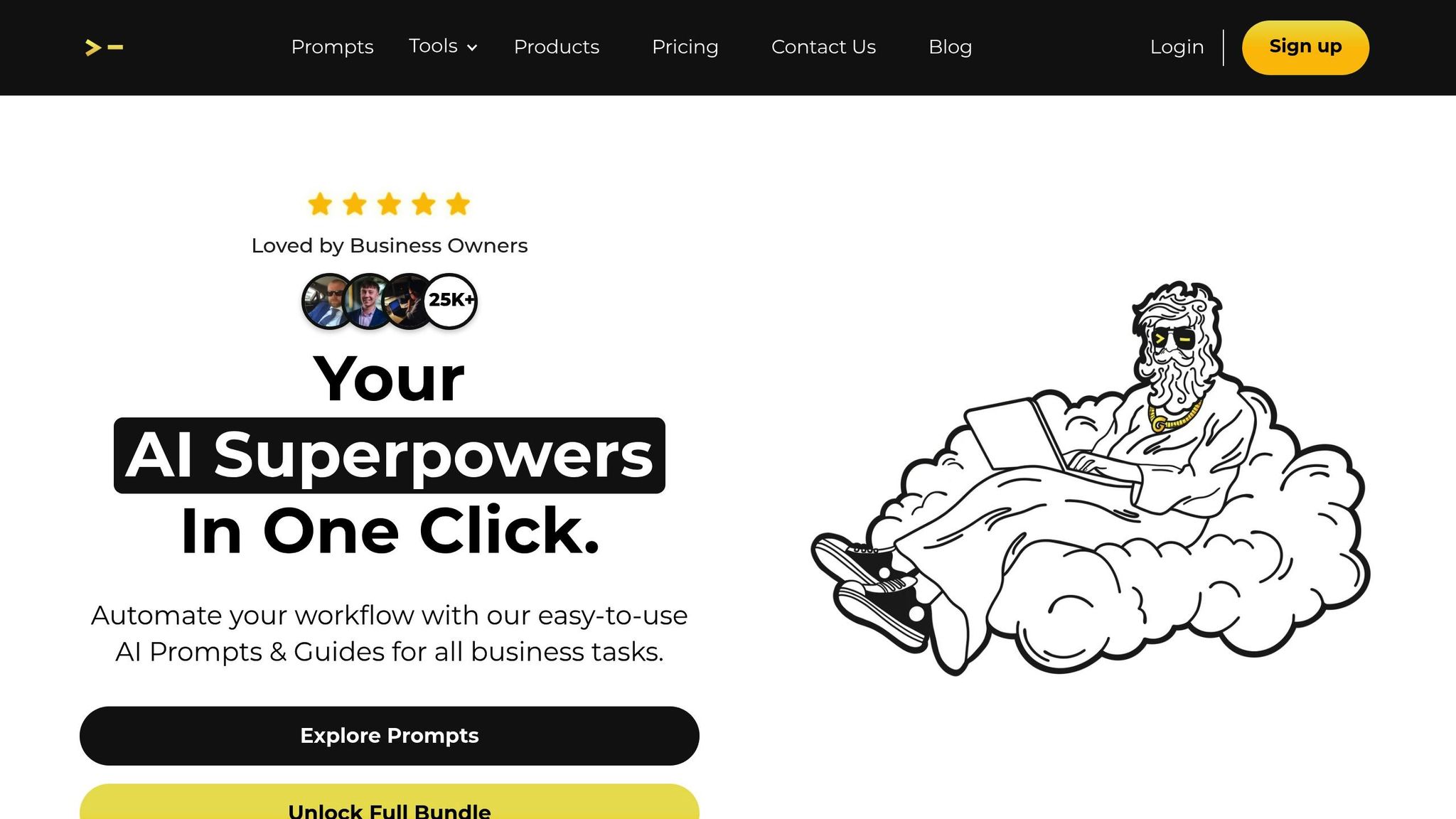
God of Prompt stands out in the world of free research tools, offering over 100 custom GPTs designed for data analysis and synthesis. Its Custom GPTs Toolkit has received an impressive rating of 4.9/5 from 93 reviews.
Here’s what it can do:
- Custom GPTs integration: Analyze multiple sources within a single interface.
- Mega-Instructions: Quickly launch AI research assistants tailored to specific tasks.
- File analysis: Handle documents, screenshots, and images with ease.
- Multi-GPT chat: Interact with several GPTs at the same time.
- Competition analysis: Gain insights into market trends.
- Custom workflow automations: Automate repetitive tasks to save time.
Real-world examples highlight its effectiveness. Lucas R. from BookNerdL used the toolkit to automate document analysis and streamline content planning, which led to higher blog engagement. Sarah Kidder of CraftySarah utilized a GPT for customer data analysis and targeted marketing, resulting in noticeable growth for her store.
To complement the toolkit, God of Prompt offers a free Prompt Engineering Guide, rated 4.9/5 by 225 reviewers. This guide shares practical tips for crafting effective AI prompts and works seamlessly with the toolkit, providing research capabilities that rival premium subscriptions - without the cost.
Coming up next: Perplexity AI, bringing real-time web search and summarization into the mix for free research workflows.
2. Perplexity AI
Perplexity AI stands out for its focus on real-time web searches and transparent sourcing. Unlike tools with information cutoffs, it uses large language models to fetch up-to-date details from sources like academic papers, YouTube, Reddit, and more. It can also analyze PDFs and includes inline citations for clarity.
The platform's Perplexity Copilot feature allows free users five guided searches every four hours. For $20/month, the Pro plan removes limits and provides access to advanced models like GPT-4 Turbo, Claude 3 Opus, and Mistral Large. Perplexity AI is available via a Chrome extension, Android and iOS apps, and API integration.
Next: How Meta AI's open-source Llama 3.2 compares to these free research tools.
3. Meta AI (Llama 3.2)
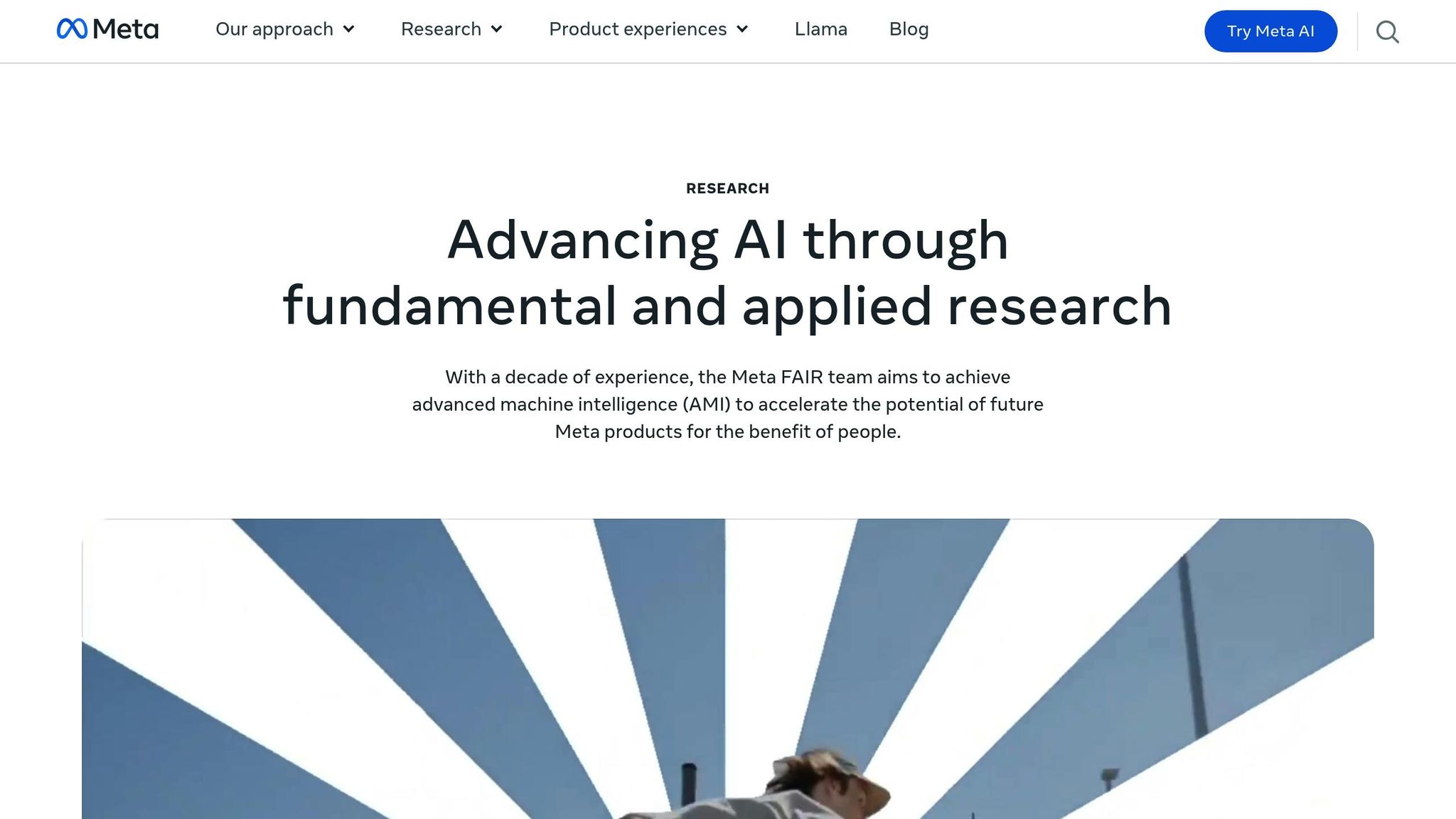
Llama 3.2 isn't a ready-to-use service - it requires integration. However, it delivers extensive customization options and eliminates per-query costs.
Meta's Llama 3.2 is an open-source large language model (LLM) available in two configurations: 8B and 70B. It's trained on 15 trillion tokens, covering over 30 languages, with more than 5% of the dataset in non-English languages. This model excels in tasks like reasoning, code generation, and following instructions. It can be integrated with platforms like AWS, Google Cloud, Azure, Hugging Face, and Kaggle. Meta promotes Llama 3.2 as a top-tier open-source model for these capabilities.
Key Performance Features [8]
- The 70B instruction-following model matched or surpassed similar models in human preference tests, showcasing strong performance in practical applications.
- The training dataset is seven times larger than Llama 2's, with four times more code-related data.
- A 128K-token vocabulary reduces token usage by 15%, making it more efficient.
Researchers can deploy Llama 3.2 on platforms like AWS, Azure, Hugging Face, or even local servers to create custom analysis pipelines without needing subscriptions. Meta also includes tools like Llama Guard 2 and Code Shield to help ensure responsible use, making it ideal for research workflows. This open-source model aligns with cost-efficient approaches found in projects like God of Prompt and Perplexity AI.
With this level of flexibility, explore how DeepSeek incorporates advanced research features.
sbb-itb-58f115e
4. DeepSeek
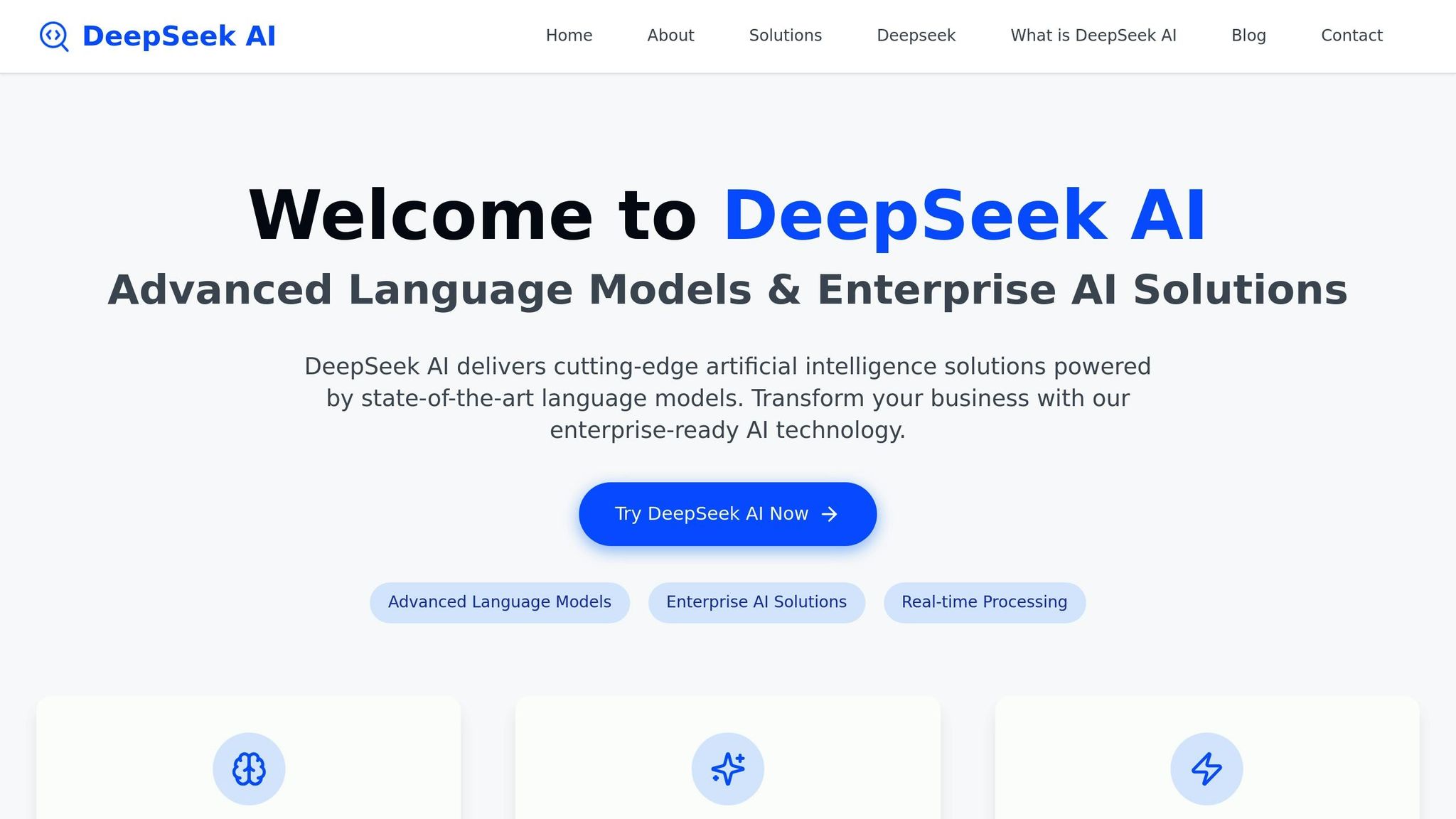
DeepSeek-V3 takes open-source AI research tools to the next level with its efficient scaling and advanced capabilities. Built with a Mixture-of-Experts (MoE) architecture, the model boasts 671 billion total parameters, yet only activates 37 billion parameters per token. This design ensures both high performance and efficiency.
Designed for research, DeepSeek handles 14.8 trillion tokens during training and supports a 128K-token context window. This allows researchers to process larger documents and datasets in a single session with ease.
Here’s what DeepSeek offers:
- Accuracy & reliability: 4.7/5 (excels in math and coding tasks)
- Speed: 4.9/5 (low latency with high throughput)
- Cost-efficiency: 4.9/5 (free chat access)
- Integration flexibility: 4.5/5
The OpenAI-compatible API is priced at $0.07 per million tokens for cache hits and $0.27 per million tokens for cache misses.
DeepSeek is already being used across industries for tasks like algorithmic trading, processing medical data, analyzing climate change, and reviewing legal documents.
Deployment is straightforward with options like SGLang (NVIDIA/AMD GPUs), LMDeploy, TensorRT-LLM, or vLLM.
Its MLA architecture, combined with loss-free load balancing, ensures enterprise-level performance without additional costs.
Next, we’ll look at how LangChain enhances these capabilities with its approach to research automation.
5. LangChain
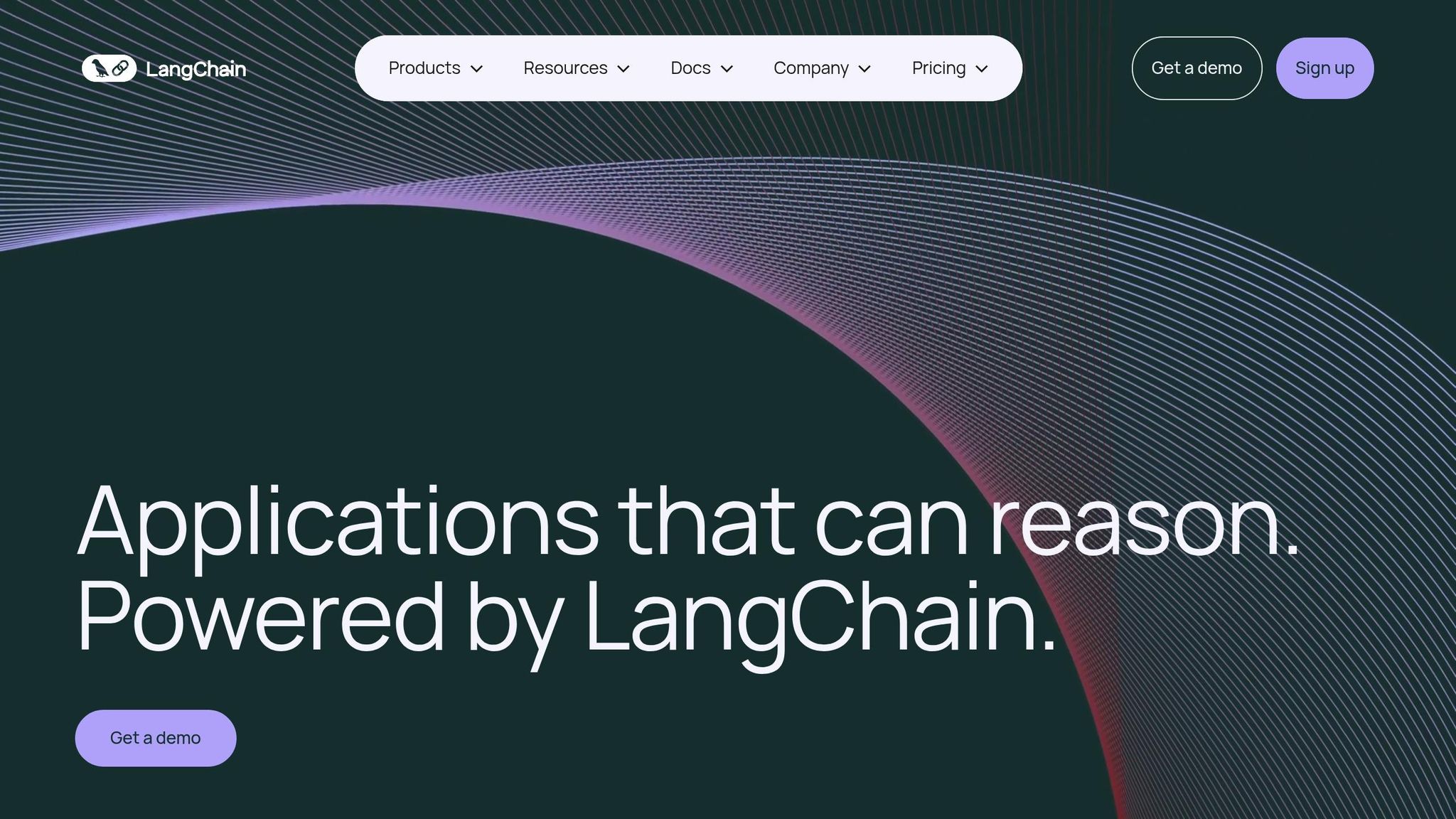
Building on DeepSeek's model performance, LangChain introduces an orchestration layer designed to automate research workflows effectively.
LangChain is an open-source framework with over 20 million monthly downloads and more than 100,000 apps. It simplifies research powered by large language models (LLMs) by connecting private data, APIs, embeddings, and vector stores - all through a single interface.
Key Features
- 600+ integrations for databases, APIs, and tools
- LangChain Expression Language for parallelized, asynchronous workflows
- Built-in observability and debugging with LangSmith
- REST API deployment using LangServe
LangChain's design offers a unified interface for LLMs and related tools, such as embedding models and vector stores. This approach minimizes the complexity of developing research applications.
You can use LangChain for straightforward tasks like sequential LLM calls paired with retrieval-augmented generation or for more intricate agent workflows by leveraging LangGraph.
With contributions from over 3,000 developers, 100,000+ GitHub stars, and an MIT license, LangChain is free to use, enterprise-ready, and trusted by many Fortune 2000 companies.
6. Research Rabbit
Research Rabbit is a free AI-powered tool designed specifically for academic research. Often described as the "Spotify for Papers", it tailors recommendations based on your collections and offers interactive ways to explore academic literature.
This platform stands out by focusing solely on academic research. It provides features like interactive visualizations of papers and authors, personalized recommendations, citation-manager integration, and collaborative sharing. You can easily import papers using BibTeX or RIS exports from tools like Mendeley, Zotero, or EndNote. Many users appreciate its easy-to-use interface, network mapping capabilities, and smart recommendations, which simplify the literature review process.
With a solid 4/5 rating among AI research tools in 2024, Research Rabbit has become a dependable option for academic and professional researchers looking for an efficient, no-cost way to manage their literature research.
Up next, we’ll take a closer look at how these six tools compare side by side.
Tool Comparison
Here's a look at the core features, target users, and pricing for six free tools:
| Tool | Key Features | Ideal Users | Pricing |
|---|---|---|---|
| God of Prompt | Custom GPTs, Mega-Instructions, File Analysis | Entrepreneurs, Business Owners | Free |
| Perplexity AI | Deep Research, Citations, Real-time Search | Journalists, Students | Free |
| Meta AI (Llama 3.2) | Open-source, Multi-language, 128K Context | Developers, Researchers | Free |
| DeepSeek | MoE Architecture, 128K Context, API Access | Data Scientists, Engineers | Free |
| LangChain | 600+ Integrations, Workflow Automation, LangSmith | Enterprise Developers | Free |
| Research Rabbit | Network Mapping, Citation Management, Collaboration | Academic Researchers | Free |
For a detailed breakdown of each tool, refer to sections 1-6.
Key Differentiators
- Real-time Search and Citations: Perplexity AI stands out for its ability to perform up-to-date web searches while seamlessly tracking citations.
Summary and Recommendations
Choose the right AI tool based on your research needs:
| Research Need | Recommended Tool | Key Advantage |
|---|---|---|
| Business & Market Analysis | God of Prompt | Tailored GPTs and business-specific prompts |
| Real-Time Information | Perplexity AI | Instant web searches with citations |
| Data Analysis | DeepSeek | Easy setup with a focus on research |
For optimal results, combine God of Prompt for structured frameworks, Perplexity AI for up-to-date citations, and DeepSeek for detailed data analysis. Pair these tools with human expertise to achieve the best outcomes.

